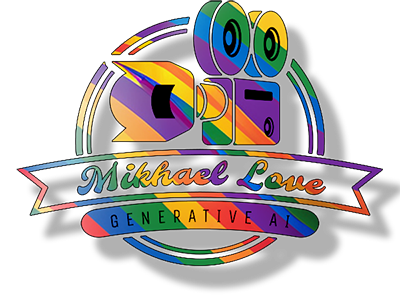In the realm of technological advancement, generative AI has emerged as a powerful tool capable of revolutionizing various sectors. However, its impact extends beyond mere efficiency; it holds significant potential to influence social dynamics, particularly within marginalized communities like LGBTQ+. This article explores how generative AI can be harnessed to empower gay men through advocacy, education, and mental health support while addressing the challenges associated with its use.
Understanding Generative AI
Generative AI, powered by technologies such as GPT models, is designed to create content, from text to images. Its applications span chatbots, marketing strategies, and educational tools. When applied to the LGBTQ+ community, particularly gay men, generative AI can offer innovative solutions tailored to their unique experiences.
Empowering Through Advocacy
Generative AI has the potential to amplify advocacy efforts for equality. Tools like virtual characters developed at MIT Media Lab provide platforms where individuals can practice LGBTQ+ advocacy, aiding in ‘coming out’ scenarios and fostering empathy. These simulations create safe spaces for exploring identity and advocating for rights, contributing to societal acceptance and legal equality.
Mental Health Support
For gay men, generative AI can offer mental health support by providing virtual companions that understand their specific needs. These tools can help reduce isolation and offer a sense of community, addressing the unique challenges faced by LGBTQ+ individuals in various cultural contexts.
Challenges: Bias and Representation
Despite its benefits, generative AI poses risks, particularly regarding bias and misrepresentation. If trained on biased data, AI models may perpetuate stereotypes or inaccuracies about gay men. Ensuring diverse and inclusive datasets is crucial to mitigate these issues, as is the role of professionals who understand LGBTQ+ issues in guiding AI applications.
Ethical Considerations in Marketing
In marketing and PR, generative AI can promote inclusivity by generating content that represents diverse identities. However, poor implementation can lead to insensitive campaigns. Gatekeeping through ethical frameworks and professional oversight is essential to ensure AI-driven marketing efforts are respectful and accurate.
Future Implications
Looking ahead, the future of generative AI within LGBTQ+ advocacy is promising. The development of openly LGBTQ+ intelligent agents could offer tailored support, enhancing both legal and societal equality. These advancements underscore the potential for AI to be a catalyst for positive change.
Conclusion
Generative AI offers transformative possibilities for empowering gay men through advocacy, education, and mental health support. However, realizing this potential requires addressing challenges like bias and ensuring ethical use. By embracing these opportunities with thoughtful consideration, generative AI can become a powerful ally in the quest for equality and acceptance.

